An old friend from New York recently contacted me by email, with brevity and urgency.
“I’m coming to Rome next week,” she wrote. “Lunch together?”
I hadn’t heard from her since her husband had passed away six months earlier, even after I’d written her a condolence letter. She was coming back to Rome from New York. On her own. At 81. Without him.
I answered immediately, fearing she might slip away with second thoughts about her solo, courageous journey. We set a lunch date for the following week.
She has known me since I was one years old. My mother has a photograph of her son and me dressed at that age in onesies, smooshed together like two pea pods on a velvet arm chair in Maine. She and my mother were then new parents looking for friendship in the coastal summer village where they spent August with the families into which they had married.
Our families have been friends now for four generations and across nations. Her father-in-law and my father-in-law’s father were friends during the Kennedy years in Washington, DC while mingling in foreign service circles of their respective countries. Her own kids have become dear friends of mine even though I have seen more of her than of them over the years due to her travels. Her grandkids and my kids have spent some summers getting to know each other over picnics and boat excursions in Maine where all generations happily collide.
I feel a closeness to her because she knows me from America but has watched me grow up in Italy. She knew me here in Rome when I was single, engaged, and then married. When I was childless, pregnant and then mother to two toddlers turned teenagers. When I was an intern, a researcher, then a reporter. She has repeatedly seen me in the context of the double lives that I lead between America and Italy, and, observed me in vulnerable moments of transition.
As I sat at our table on the Piazza Farnese several weeks ago, I tried to swallow the lump in my throat when I first saw her walking towards me, alone. I glared at the cobblestones underfoot, pleading with them to make my tears disappear.
I couldn’t bear the thought that she was a foreshadowing of what I might one day see in my own healthy parents — only one of them visiting me without the other.
Every time she visited Rome with her husband, I felt as if I’d had a surrogate visit from own parents. Her presence often made any ounce of homesickness disappear.
Once I moved to Rome in the late nineties, she always called me whenever she came to attend a meeting of an American organization to which she was devoted for many years. During our many meals together, we always hit the important topics. She listened to me confess that living overseas often felt lonely, that pioneering a new city without old friends felt daunting, that juggling two cultures and languages exhausted me. She gave me strength to keep going, despite the loneliness, the challenges, the initial, enticing newness that had worn off. She encouraged me to stay put, and stay strong. A visit from her always boosted my confidence and reminded me of my American self, inspiring me to morph it into my newly-discovered Italian self. She led me to feel I could be both at once, no matter where I ended up living.
Here in Rome, when together, we both let our hair down, kick off our sturdy, summer boat shoes and slip into flimsy sandals. We dismiss the type-A organizational planning of the East Coast, and embrace the last-minute organization. We order whatever the chef suggests, show up for dinner at an hour when most go to bed in Maine, and exhale as we sip on a Pinot Grigio, over lunch and dinner. Here, we’re removed from the talk of where my kids or her grandkids might go to college, whose marrying whom, or whose going to be at sailing camp this summer. We focus on eating fried fiori di zucca and carciofi, and share tips about the hidden, artisanal shops in Rome’s historic center, miles away from the outlets of Maine. Rome has let us each become that someone else, that alter ego, that we all have the power to turn into when we travel.
She had spent her honeymoon in Rome, 51 years ago, and she still stays at the same hotel. Not the fancy one off of the Piazza del Popolo but the family-run one at the Pantheon which charges her little and fills her with familiarity.
This was her first trip since he had died. It was her way of proving that she could do life after him. I sensed that she found comfort in feeling Rome would never change even if she had.
She was wearing a purple zip-up cardigan and her eyes shined like blueberries. We both love the color purple. One summer afternoon in Maine, she saw me in a fleece the color of eggplant. When I told her I had purchased it from the local clothing store on Main Street, she bought one for herself. We were twins, an eggplant parmesan, which is what she ate after her zucchini blossom that day at lunch together.
She wore Janus-head gold coin earrings, and her salt and pepper hair swooped like Grace Kelly’s. Her effortless beauty caught the eyes of flirtatious Italian waiters as she shyly cast her own upon her plate. I could tell they made her feel younger. I wondered if they had any idea she had just lost her husband of five decades.
We got talking about flowers, and how much she loves them. She told me she always travels with a small vase in her suitcase. And, whenever she shows up in Rome, she buys a fresh bouquet from the palette of florals at Campo de’ Fiori.
She told me how, in Rome, she often picks a sprig of rosemary from a city hedge and tosses it into the bathtub at the end of a day for a deep soak. It reminded me of how my husband always tears a piece of sage, basil or mint off plants on someone’s farm or at an open-air market, and thrusts it under my nose as if an alchemist concocting a magic potion.
My friendship with her has bloomed here, encapsulated in Rome like a bouquet of flowers, a blend of both our worlds.
At our most recent lunch, we had grown into two elderly women, probably mistaken by some as mother and daughter, and still sharing stories of love, lost and found, in the city we both love that has become her refuge and my home.
When I was in my late twenties, she held my hand across a red-and-white checkered trattoria tablecloth as I grew teary and weary, wondering if my then-boyfriend-now-husband would ever propose to me. Years later, I found myself holding her hand as she grew teary and weary and wept about her late husband.
After we said goodbye, I cried. Out of sadness for her loss, and of joy that she had shown both of us that she could do this, could move forward, and could let Rome carry her back again and again to moments when she felt in love in Rome and fell in love with Rome.
When my husband and I got married, she gave us a set of 12 Wedgewood plates, each with an engraving of a Roman piazza on it. I probably should have hung them on the wall as decoration. Instead, we use them all the time, as they make me think of our friendship shared over Roman plates and piazzas. And how friendships can grow stronger when taken out of our comfort zone — and are watered and nurtured in an overseas garden where we all dare to grow, and always hope to return.





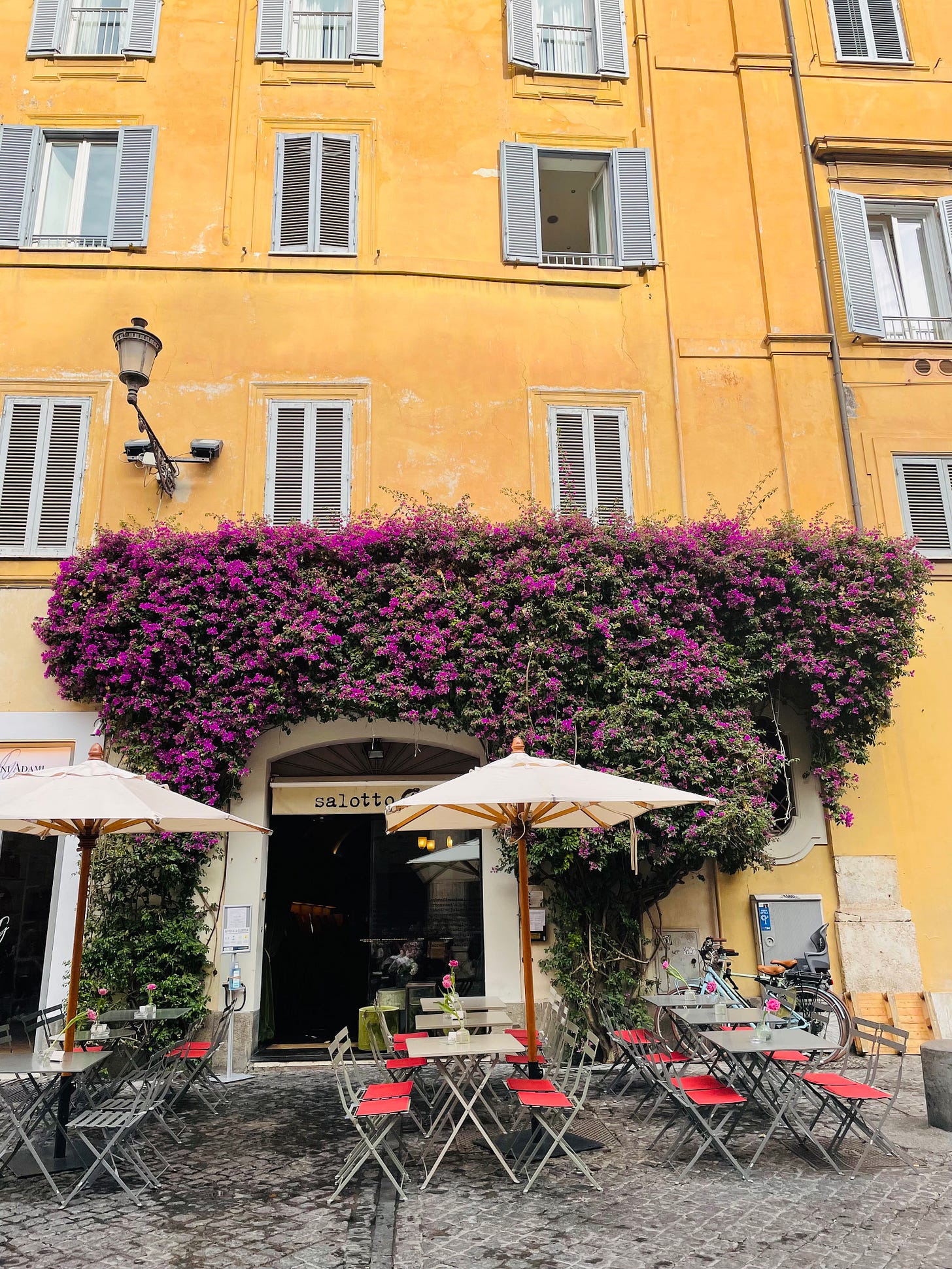

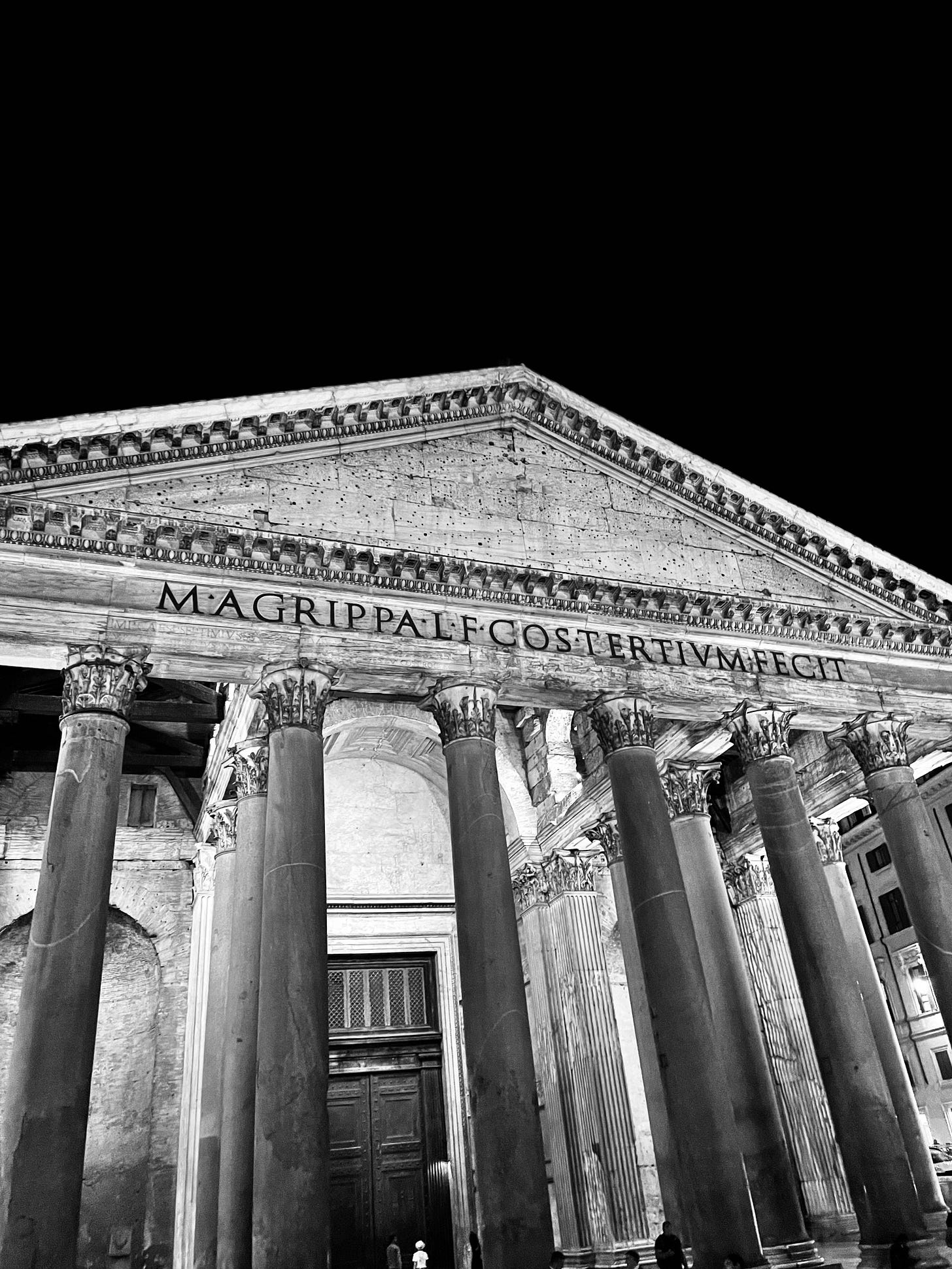
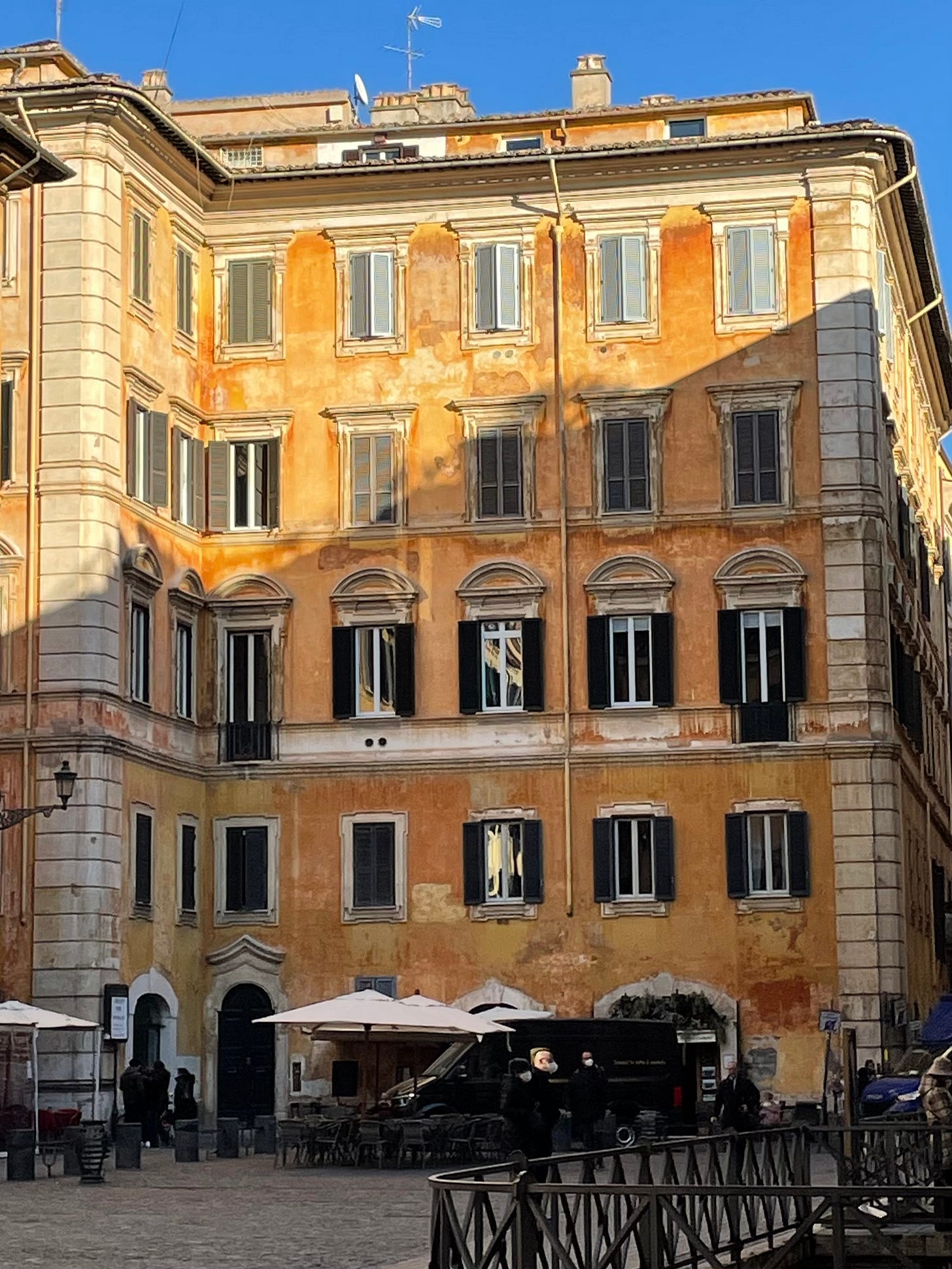
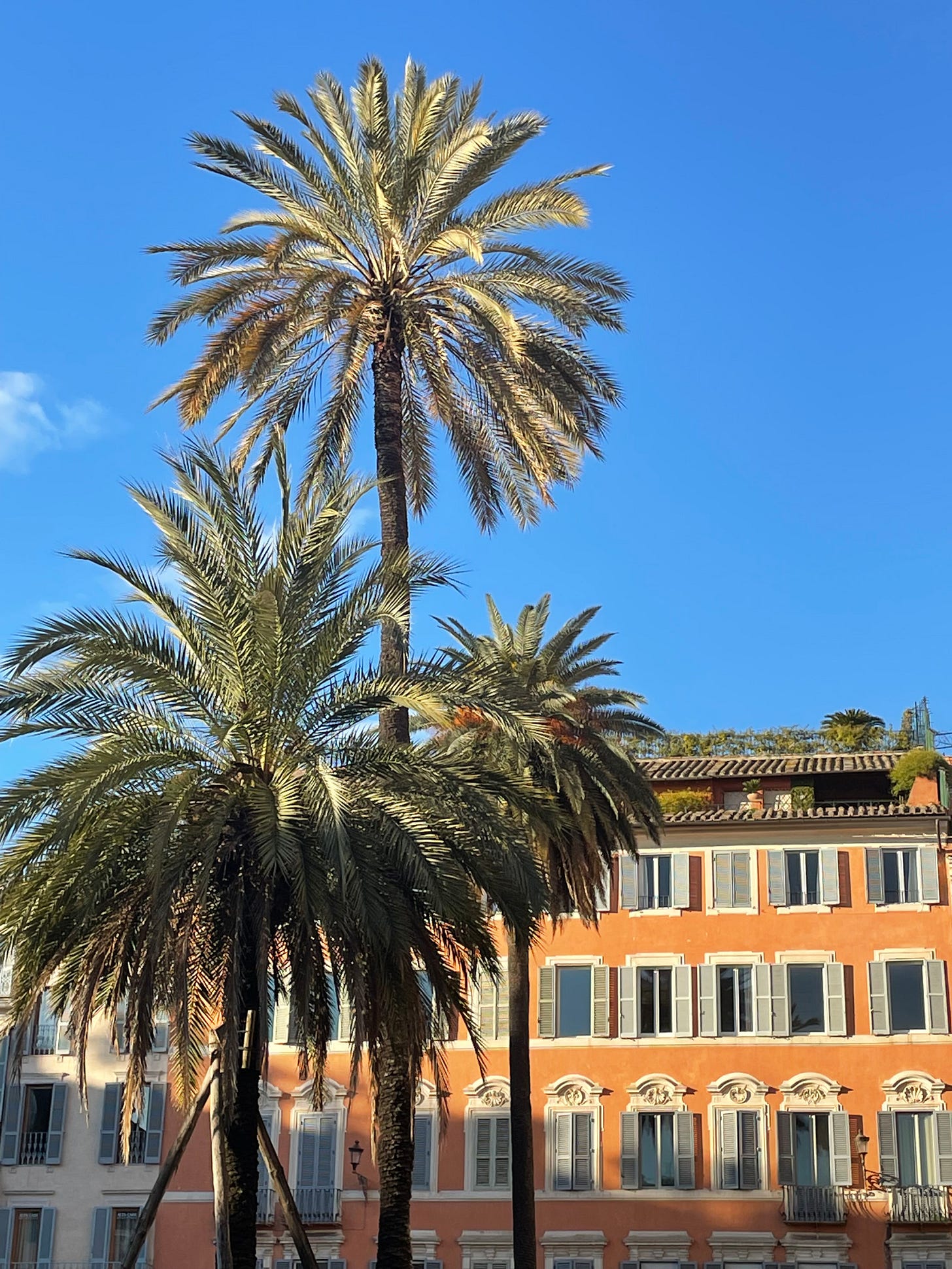
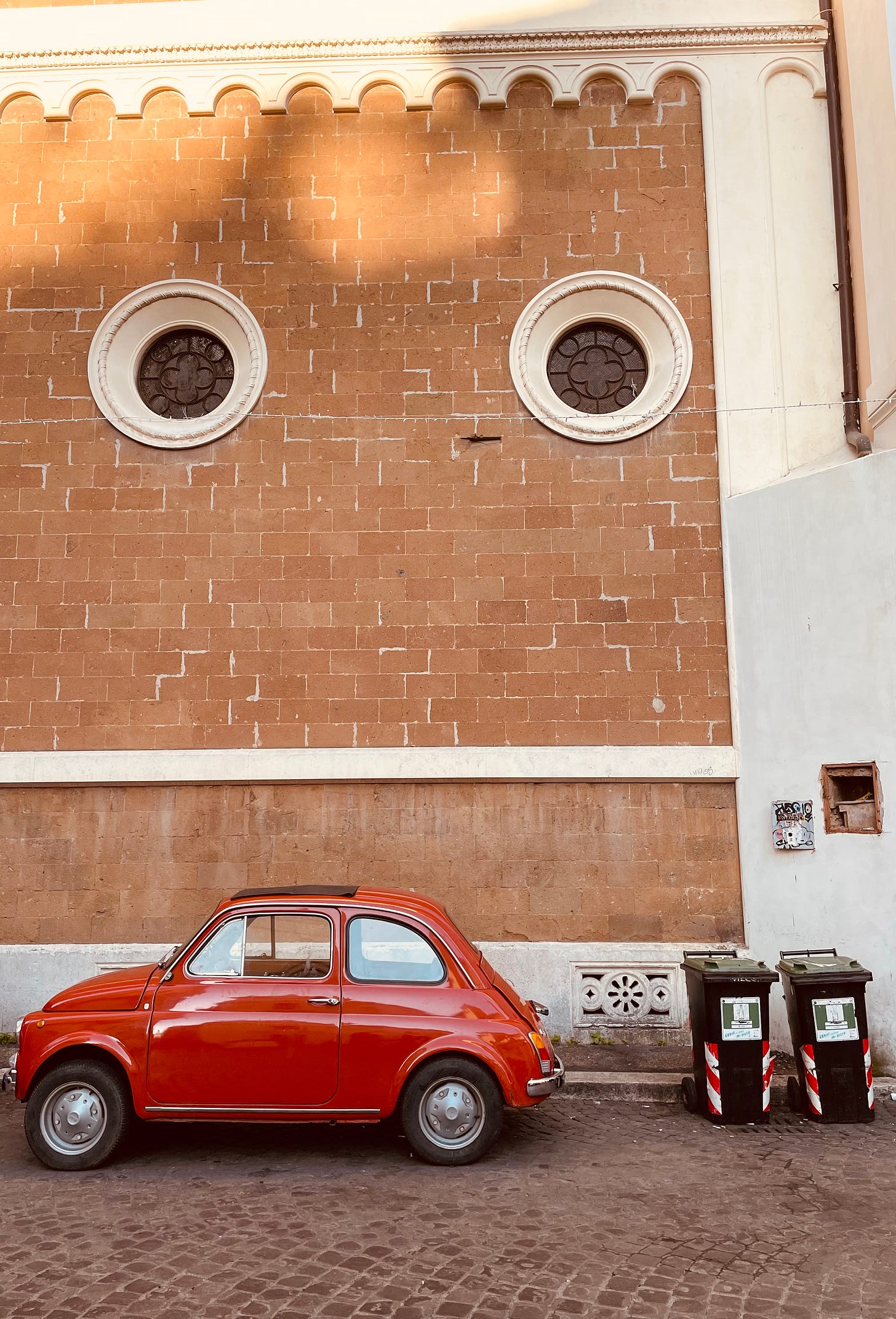
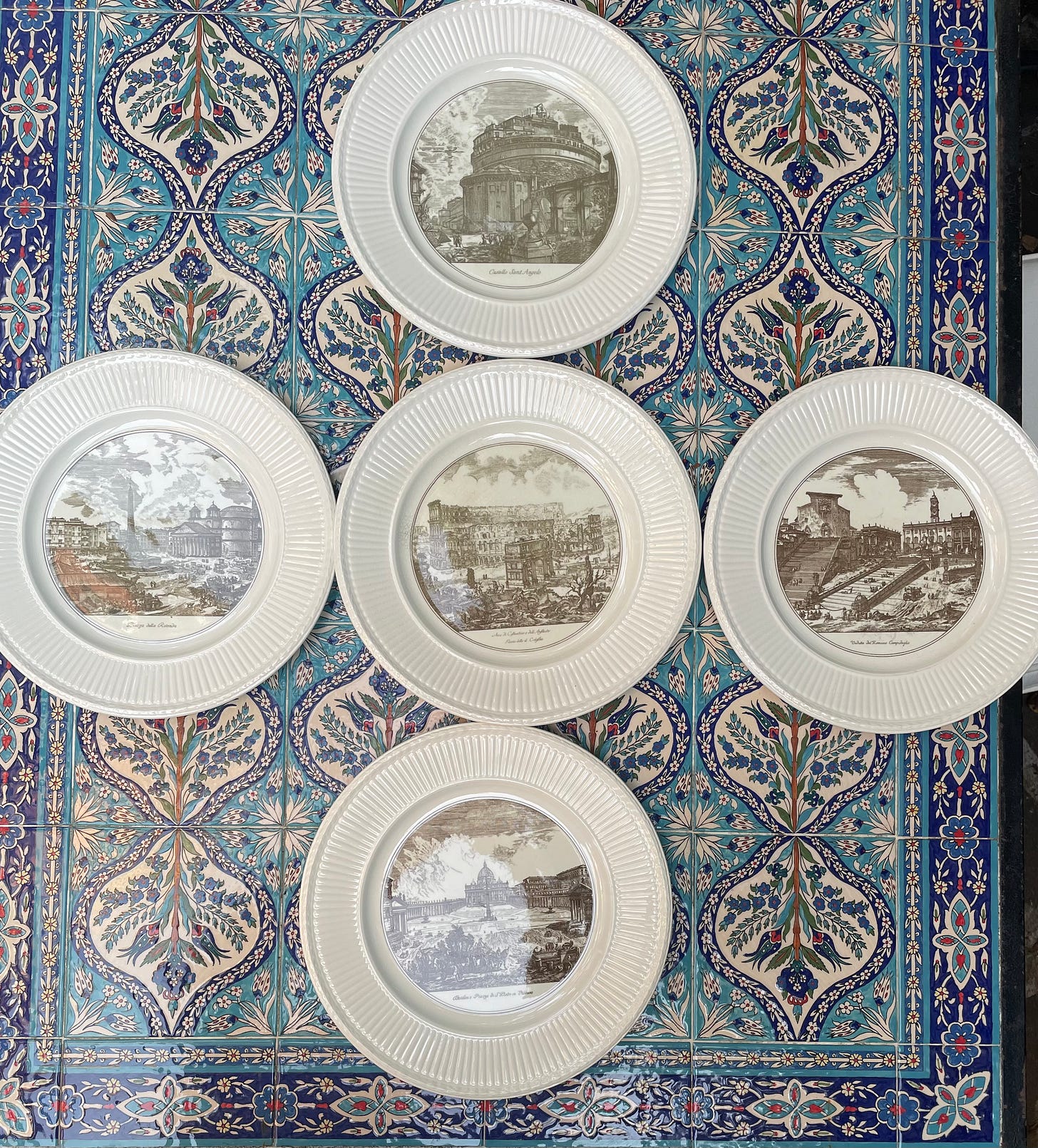
Again one of your wonderful, enchanting stories !!! I felt like being back in Rome myself.Thanks for sharing your stories.
Grazie, Sheila! We miss you a lot too!
Amelia & Stefano